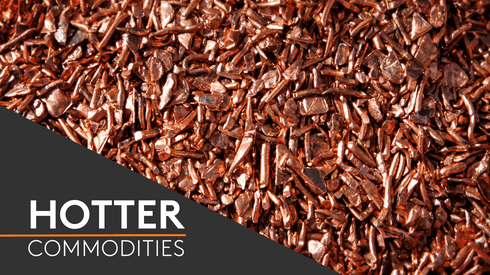Demand in China’s silicon market is likely fall in the near term while the secondary aluminium market struggles with the impending restrictions on imports of non-ferrous scrap metal, market sources told Fastmarkets on the sidelines of Antaike’s 2019 China Industry Silicon Conference in Guizhou, China. And Chinese industrial policy is likely to remain geared toward environmental protection in 2019, raising the operational costs of domestic silicon producers.
Warehouse operator Access World has significantly increased its London Metal Exchange warehouse presence in Port Klang, Malaysia, by listing 25 new LME-registered warehouses there over the past two weeks.
Copper scrap sold into China in April was at the widest discount level in the past three years on a massive backlog of non-ferrous scrap due to the upcoming halt in July scrap imports after policy changes. Fastmarkets assessment for the discount for No2 copper scrap, birch/cliff, imported in China is at 37-42 cents per lb on April 29, a significant stretch compared with 32-38 cents per lb a month before on March 25.
Treatment charges paid for zinc concentrates on the spot market declined in April, with Chinese smelters and traders actively acquiring tonnages at lower levels than before.
The European aluminium-226 ingot price fell to a five-month low on April 26, while suppressed alloy demand from a weakening European automotive sector continues to add downward pressure on the alloy market. The 226-aluminium alloy, which the European automotive sector predominantly smelts for car parts, has steadily declined in price to its current level at €1,410-1,460 ($1,571-1,627) per tonne, down by 9.4% from its year high of €1,560-1,610 per tonne on January 18.




